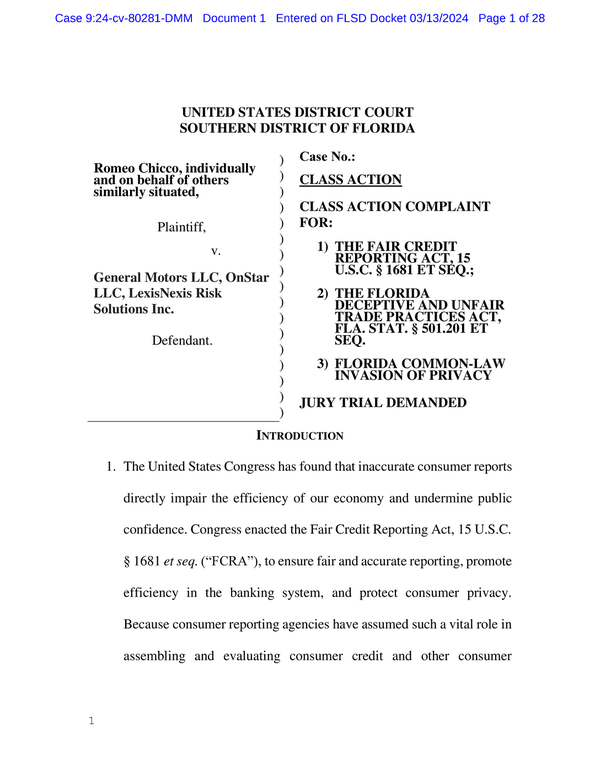Romeo Chicco’s auto insurance rate doubled because of information about his speeding, braking and acceleration, according to his complaint.
When Romeo Chicco tried to get auto insurance in December, seven different companies rejected him. When he eventually obtained insurance, it was nearly double the rate he was previously paying. According to a federal complaint filed this week seeking class-action status, it was because his 2021 Cadillac XT6 had been spying on him.
Modern cars have been called “smartphones with wheels,” because they are connected to the internet and packed with sensors and cameras. According to the complaint, an agent at Liberty Mutual told Mr. Chicco that he had been rejected because of information in his “LexisNexis report.” LexisNexis Risk Solutions, a data broker, has traditionally kept tabs for insurers on drivers’ moving violations, prior insurance coverage and accidents.
When Mr. Chicco requested his LexisNexis file, it contained details about 258 trips he had taken in his Cadillac over the past six months. His file included the distance he had driven, when the trips started and ended, and an accounting of any speeding and hard braking or accelerating. The data had been provided by General Motors — the manufacturer of his Cadillac.
In a complaint against General Motors and LexisNexis Risk Solutions filed in the U.S. District Court for the Southern District of Florida, Mr. Chicco accused the companies of violation of privacy and consumer protection laws. The lawsuit follows a report by The New York Times that, unknown to consumers, automakers have been sharing information on their driving behavior with the insurance industry, resulting in increased insurance rates for some drivers. LexisNexis Risk Solutions, and another data broker called Verisk, claim to have real-world driving behavior from millions of cars.
In his complaint, Mr. Chicco said he called G.M. and LexisNexis repeatedly to ask why his data had been collected without his consent. He was eventually told that his data had been sent via OnStar — G.M.’s connected services company, which is also named in the suit — and that he had enrolled in OnStar’s Smart Driver program, a feature for getting driver feedback and digital badges for good driving.
Mr. Chicco said that he had not signed up for OnStar or Smart Driver, though he had downloaded MyCadillac, an app from General Motors, for his car.
Read the Class Action Complaint Against G.M. and LexisNexis Risk Solutions
Romeo Chicco filed the complaint, alleging unfair and deceptive car data collection, in the Southern District of Florida on Wednesday, March 13, 2024
